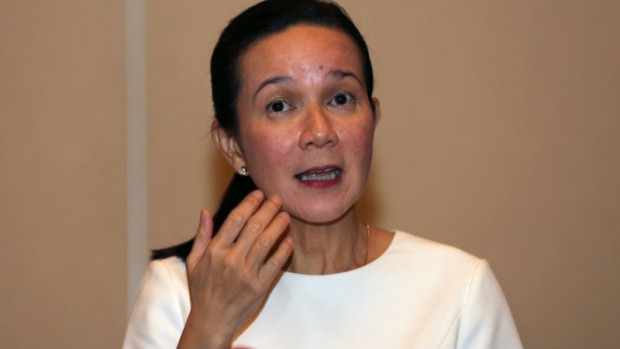PLEADINGS and comments began to be filed Monday at the Supreme Court on the various cases regarding the citizenship and residency qualifications of Sen. Grace Poe, one of the presidential candidates in the May elections.
The Office of the Solicitor General (OSG), representing the Senate Electoral Tribunal, asked the high court to dismiss the certiorari suit filed by Rizalito David contesting the SET’s ruling that Poe was a natural-born citizen and was thus qualified to run for senator in 2013.
The government lawyers compared the scrutiny of Poe’s natural-born status to the obsession over blood purity by the villains in the popular “Harry Potter” novels and films.
“One must therefore be similarly mindful of the almost comical scale which we are scrutinizing the purity of [Poe’s] blood, as if purity of blood were a standard for capacity to govern—as if our nation belonged to House Slytherin; and this scrutiny assumes an ironic twist when considered against the backdrop of aggressive attempts to justice the Filipino citizenship of others just so we may, as a nation, improve our athletic or cultural profile,” the OSG said in its 28-page comment to David’s suit.
Due to its position supporting Poe’s side, the OSG, in a manifestation also filed at the high court, said it would not be able to defend the Commission on Elections, which Poe had also sued following its two rulings canceling her certificate of candidacy (COC) for President due to alleged material misrepresentations regarding her citizenship and residency qualifications.
The OSG, being the government’s law firm, usually represents government agencies in suits before the high court.
Last Dec. 23, the Supreme Court stopped the Comelec from imposing its two resolutions canceling Poe’s COC.
In their comment on David’s suit, the OSG lawyers led by Solicitor General Florin Hilbay said the SET did not commit grave abuse of authority in declaring the Poe was a natural-born Filipino, that she validly reacquired her natural-born citizenship by law, that she validly renounced her American citizenship to qualify her for public office, and that her use of her US passport cannot be considered a recantation of her renunciation of her US citizenship.
The OSG said the delegates who crafted the 1935 Constitution, which was in effect when Poe was born, intended that foundlings are to be considered Filipino citizens.
“This evident concern to recognize foundlings as citizens under the [1935] Constitution is founded on a fundamental question of injustice inflicted on innocent children abandoned by their parents, who, in all likelihood, have Filipino parents. The recognition of their status as Filipinos, therefore, not only flows from practical reason—the near-certainty that their parents are Filipinos—but also from the need to address a basic question of justice: how to reduce the systemic unfairness suffered by foundlings,” the OSG said.
RELATED VIDEO
